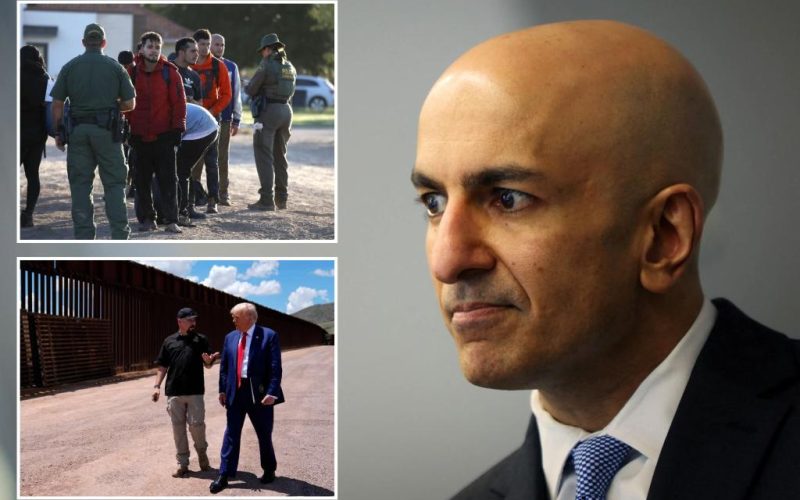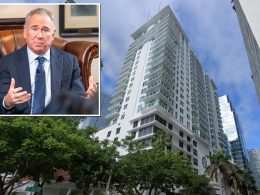Mass deportations of illegal immigrants working in the US would likely disrupt the labor supply at some businesses, but it’s uncertain what impact it would have on inflation and the economy at large, Minneapolis Federal Reserve President Neel Kashkari said on Sunday.
Kashkari appeared on CBS’ “Face the Nation” and outlined his views on the impact of President-elect Trump’s campaign pledge to deport illegal immigrants.
“If you just assume people are working – either working in farms or working in factories – and those businesses now lose employees, that would probably cause some disruption,” Kashkari said.
“The implications are not entirely clear to me,” he explained. “Ultimately, it is going to be between the business community and Congress and the executive branch to figure out how they would adjust.”
His comments come after The Wall Street Journal on Friday reported that Trump’s plan to conduct the largest mass deportation in US history could cost $88 billion a year or $968 billion over more than a decade, according to a liberal immigration group known as the American Immigration Council.
Trump told NBC News last week that, “It’s not a question of a price tag,” when it comes to the immigration plan and that the country has “no choice” because “when people have killed and murdered, when drug lords have destroyed countries, and now they’re going to go back to those countries because they’re not staying here.”
Key Square Capital Management CEO Scott Bessent, a key Trump adviser on economic policy who is considered a potential Treasury secretary nominee, echoed those comments on FOX Business Network’s “Sunday Morning Futures” and said that the status quo is more costly than Trump’s mass deportations.
“Let’s talk about the human cost. We have 100,000 fentanyl deaths a year because of the porous border. We have the increased crime. We have the underlying fear that the American people have. You can’t put a price on that,” Bessent said.
Kashkari also discussed Trump’s plan to impose broad tariffs on imported goods as well as tax cuts, and explained that the impact of those policies on inflation would depend on how they are implemented.
He said that a tariff – which is a tax assessed on an imported good when it enters the country – could prompt a one-time increase in prices but have no significant impact on long-run inflation.
However, Kashkari explained that “the challenge becomes if there is a tit-for-tat,” and, “If it is one country imposing tariffs, and then responses, and it is escalating… we will have to wait and see what gets implemented and then how other countries might respond. Right now we are just all guessing.”








